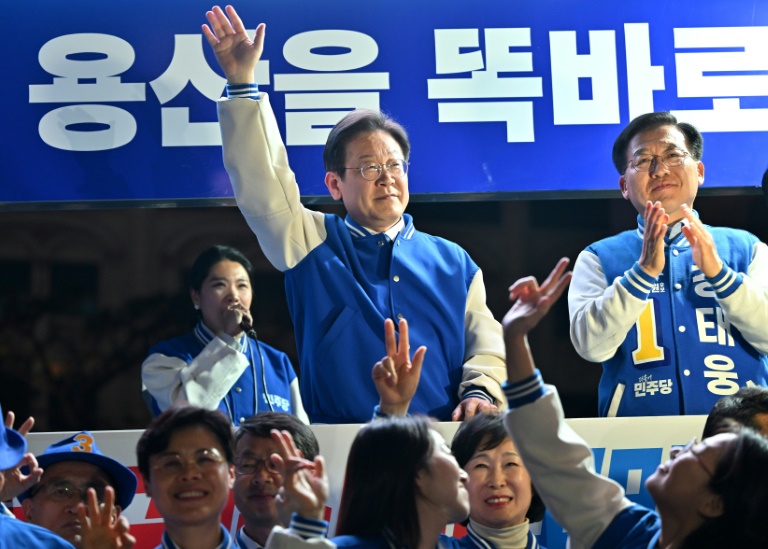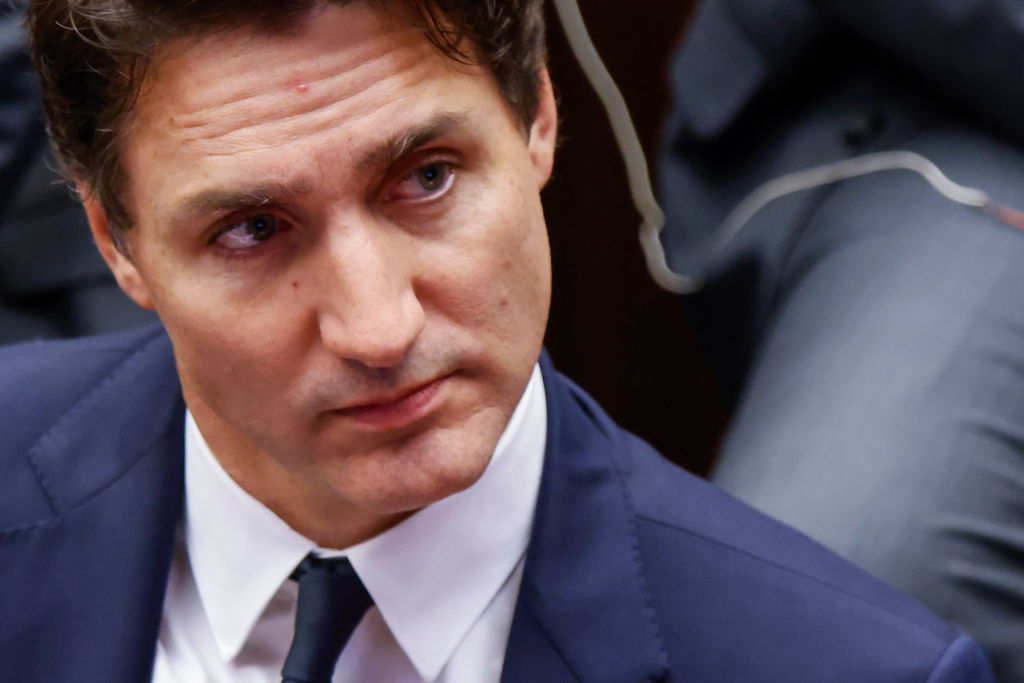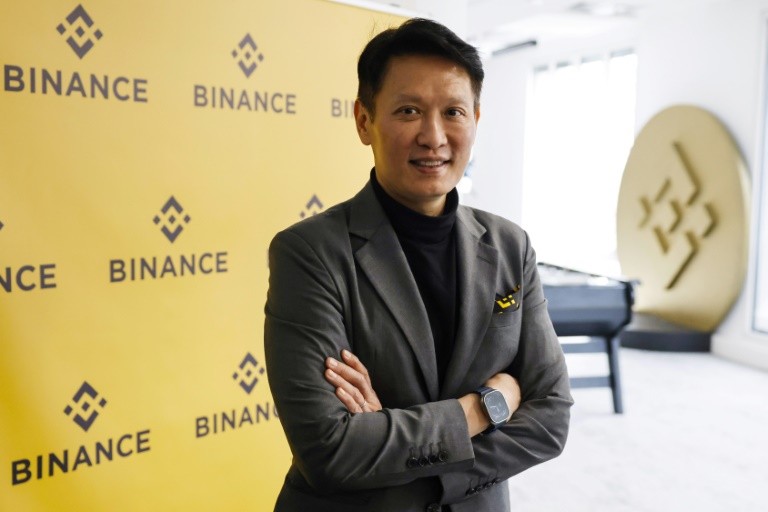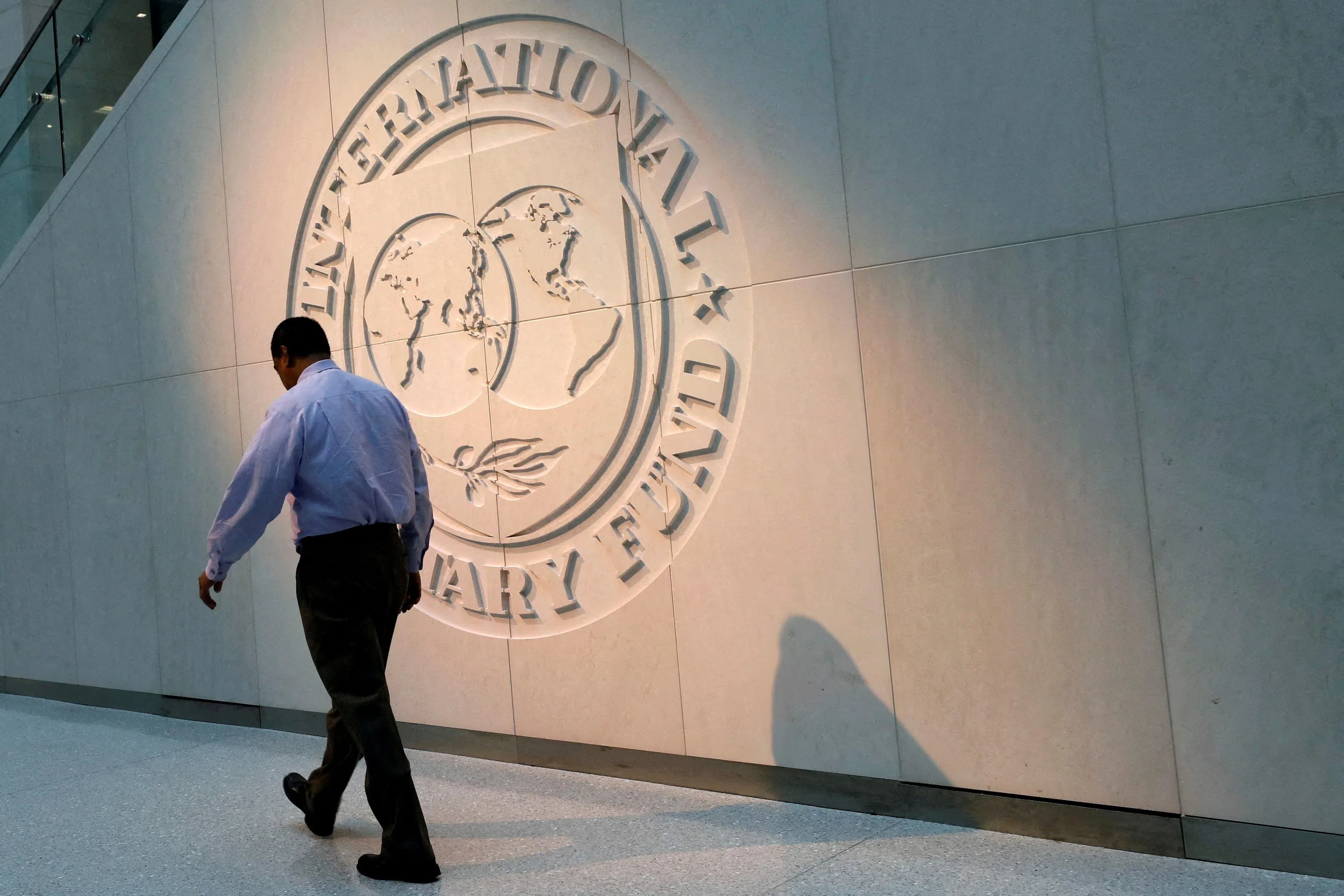The big winner in South Korea’s election is the country’s most controversial politician: opposition leader Lee Jae-myung, whose party is heading towards a landslide win, making the scandal-plagued liberal a real danger to beleaguered President Yoon Suk Yeol.
A former factory worker who played up his rags-to-riches tale to rise to the top of Korean politics, Lee lost the 2022 presidential election to arch-rival Yoon by the narrowest margin in the country’s history — but now he’s back for revenge.
With his party and its satellite set to boost their parliamentary majority according to initial exit polls — and with help from a minor liberal party potentially securing a super-majority, allowing them to try and impeach Yoon — Lee is set to dominate South Korean politics, analysts say.
He’s also well-positioned to run again and take Yoon’s job when the president’s single five-year term ends in 2027.
His Democratic Party’s parliamentary victory “will present Lee great momentum in his pursuit of the presidency,” said Bae Kang-hun, a political consultant, adding that many of the DP’s new lawmakers were staunch Lee allies.
“They will help him a great deal in the parliament to pave the way for him to get the party nomination,” to run as the DP’s presidential candidate in 2027, he added.
Lee, who was stabbed in the neck in January by a man pretending to be his supporter, rebounded from his 2022 presidential election loss to lead the DP with a pledge to “punish” Yoon through polls.
He had long called for the parliamentary elections Wednesday to serve as a referendum on the president, saying the vote allowed “the people to decide whether the government should keep the power or be punished over its two-year governance.”
The rise of a newly-formed Rebuilding Korea party, led by former justice minister Cho Kuk, which is projected to win 12 to 14 seats, also shows the scale of voter discontent with the two main parties, experts say.
The verdict “is a clear referendum on Yoon,” said political analyst Yum Seung-yul.
“The figures today represent strong anger of the people at Yoon for his two-year governance,” he said, adding the key question now was “whether Yoon will change his governing style for the remainder of his term.”
For years, Lee has sought to emphasise the stark contrast between his life story and that of Yoon, who was raised in an affluent family.
While he was running for president, his campaign published two photographs: one showed a floppy-haired young Lee in an ill-fitting suit and the other a teenage Yoon in a bow tie.
He also promoted policies including cash handouts to young adults, free school uniforms and free maternity care, and has previously vowed to expand his universal basic income scheme nationwide as president.
Such proposals have found support in South Korea, amid growing worries about inequality, sky-high housing prices and youth unemployment.
“I escaped poverty, but many around me are still stuck… I want to change the system,” he told AFP before the 2022 election.
But his opponents accuse him of being a populist who will pile on debt to pay for these schemes.
Lee’s journey up the ranks of South Korean politics has also been marred by scandal, and he is under investigation in a slew of cases, which he claims are politically motivated.
He faces trial on charges of bribery linked to a firm that is suspected of illicitly transferring $8 million to North Korea.
Lee is also accused of a breach of duty that allegedly resulted in a loss of 20 billion won ($14.8 million) for a company owned by Seongnam city when he was its mayor.
There had been calls even from within his own party for Lee to step aside — but the party’s election victory Wednesday will “silence dissent”, political pundit Yoo Jung-hoon said.
“He has produced the outcome, which will cement his path towards the next presidential run. With this outcome, he has become parliament’s most powerful politician.”
AFP
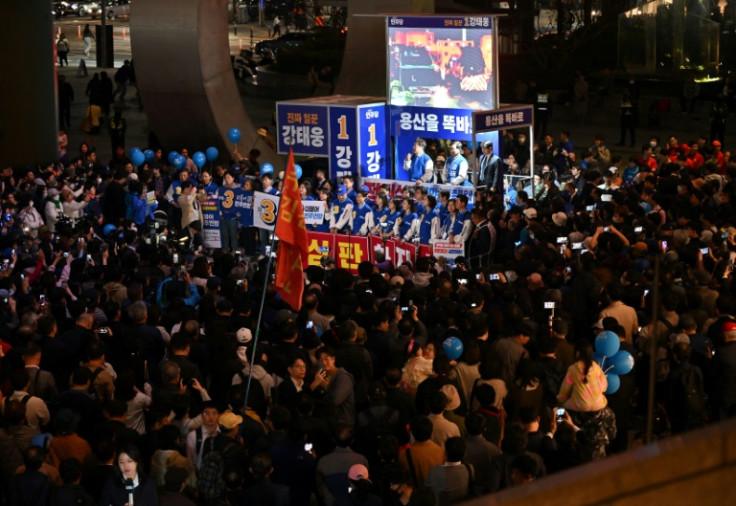
AFP

